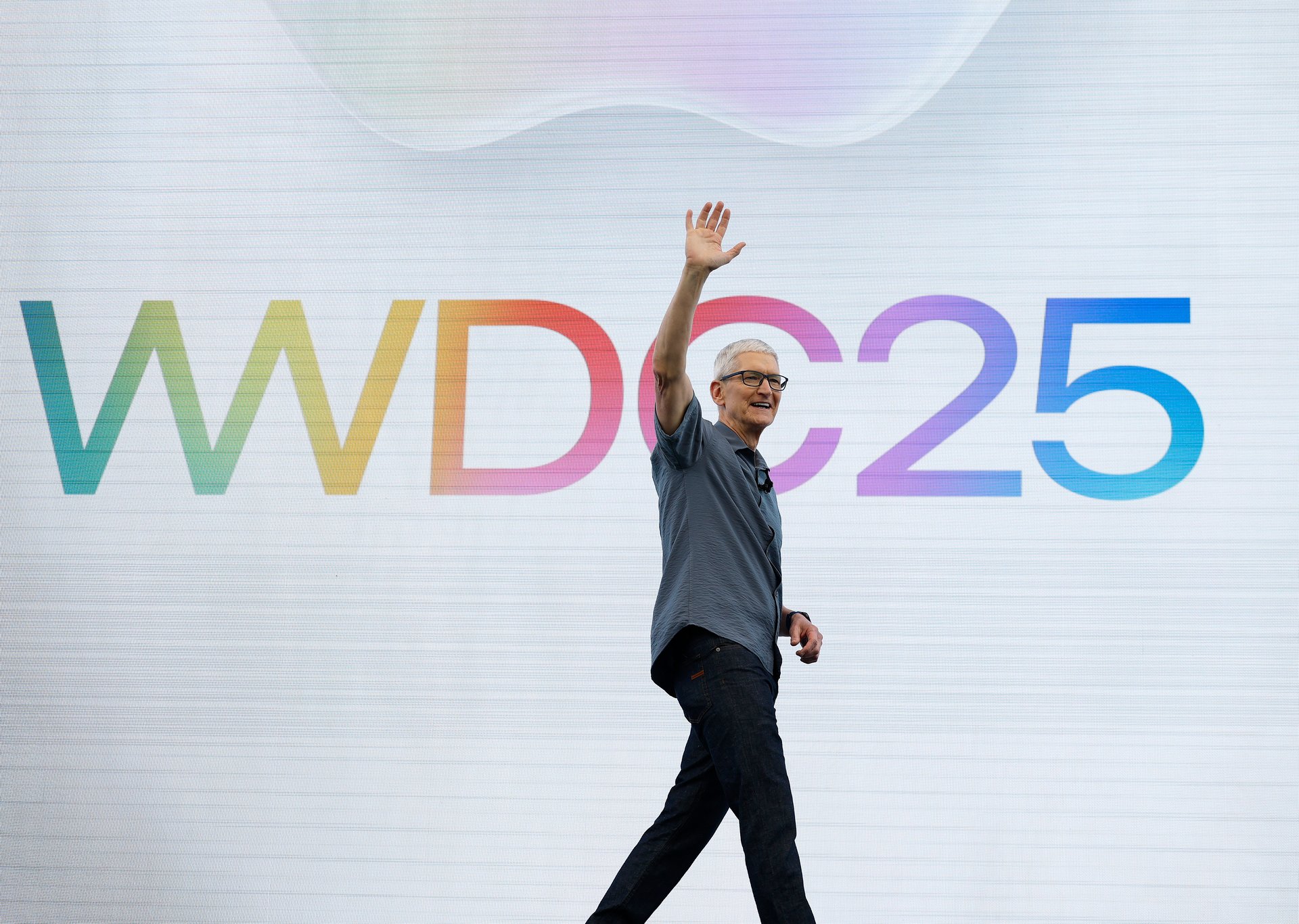Apple's WWDC underwhelmed. But it planted the seeds for future AI success
Buried beneath the surface-level disappointment was a quieter announcement that could prove far more consequential for Apple's AI ambitions

Justin Sullivan/Getty Images
Wall Street isn't impressed with Apple this week. As the tech giant holds its annual Worldwide Developers Conference (WWDC), one analyst called the event "a yawner". Shares fell more than 1% Monday before inching back a bit Tuesday as investors were disappointed by AI announcements another analyst called "incremental at best."
Suggested Reading
Apple's annual developer showcase failed to deliver the splashy announcements that have defined previous WWDCs — no Vision Pro-style hardware debut, no Apple Intelligence reveal.
Related Content
Instead, Apple spent most of its keynote unveiling "Liquid Glass," a new design language that makes iOS look, well, more glass-like. As with many Apple announcements, reactions spanned from really liking it to calling it a “bad” copy of the Windows Vista aesthetic from 2007.
But buried beneath the surface-level disappointment was a quieter announcement that could prove far more consequential for Apple's AI ambitions: the Foundation Models framework.
For the first time, Apple is giving third-party developers direct access to the on-device large language models that power Apple Intelligence — with as little as three lines of code. This represents a fundamental shift for a company that has historically guarded its core technologies like state secrets.
The framework enables developers to build AI features that run entirely offline, protecting user privacy while eliminating the cloud API costs that can make AI prohibitively expensive for smaller developers. Examples showcased included the quiz platform Kahoot creating personalized study questions from user notes and the hiking app AllTrails suggesting routes based on natural language descriptions — all without an internet connection.
What makes this significant isn't the current capabilities of Apple's 3 billion parameter model, which pales compared to frontier models like GPT-4 which is rumored to be more than a trillion. It's the strategic positioning.
Apple has never been first to market with transformative technologies. The company didn't invent smartphones, tablets, or smartwatches — it perfected them. The Foundation Models framework suggests Apple is applying this same playbook to AI.
Consider the math: Apple has over 1 billion active iPhone users and millions of developers in its App Store ecosystem. Even if Apple's current AI models are inferior to OpenAI's or Google's, enabling millions of developers to experiment with free, on-device AI could generate the breakthrough applications that Apple hasn't been able to create internally.
By enabling millions of developers to build on Apple's AI foundation, the company could leverage its ecosystem advantages rather than trying to out-innovate OpenAI or Google directly. As tech analyst Ben Thompson noted, Apple's initial success with the Apple II was because of third-party developers, and developers were critical to making the iPhone a sustainable success with the App Store.
"Trusting developers and relying on partners may be a retreat from Apple's increasing insistence on doing everything itself, but it is very much a welcome one," Thompson wrote.
While competitors like Google and OpenAI race to build ever-larger cloud-based models, Apple is trying a different approach: making decent AI universally accessible across its device ecosystem. What's more, it's doubling down on local processing — something other companies have largely abandoned in their rush to the cloud.
This strategy aligns with Apple's broader positioning around privacy. In an era when AI companies are scraping the internet for training data and users are increasingly concerned about data privacy, Apple's on-device approach could prove prescient.
None of this guarantees success. Apple delayed its promised "more personal" Siri features in March and provided no update on timing during Monday's keynote. The company's AI credibility remains damaged from over-promising and under-delivering on Apple Intelligence.
But if Monday's start to WWDC was indeed a "retreat," as Thompson characterized it, it might be a strategic one. Rather than continuing to overextend in a battle it is unlikely to win, Apple can return to focusing on its unique advantages while making a bet that empowering developers and partners will pay off like it has before.
The Foundation Models framework might not generate headlines like ChatGPT or Gemini. But in Apple's typical fashion, it could prove more important than the flashier announcements from its competitors. The question is whether developers can build something compelling enough with Apple's tools to keep the company in the AI race.